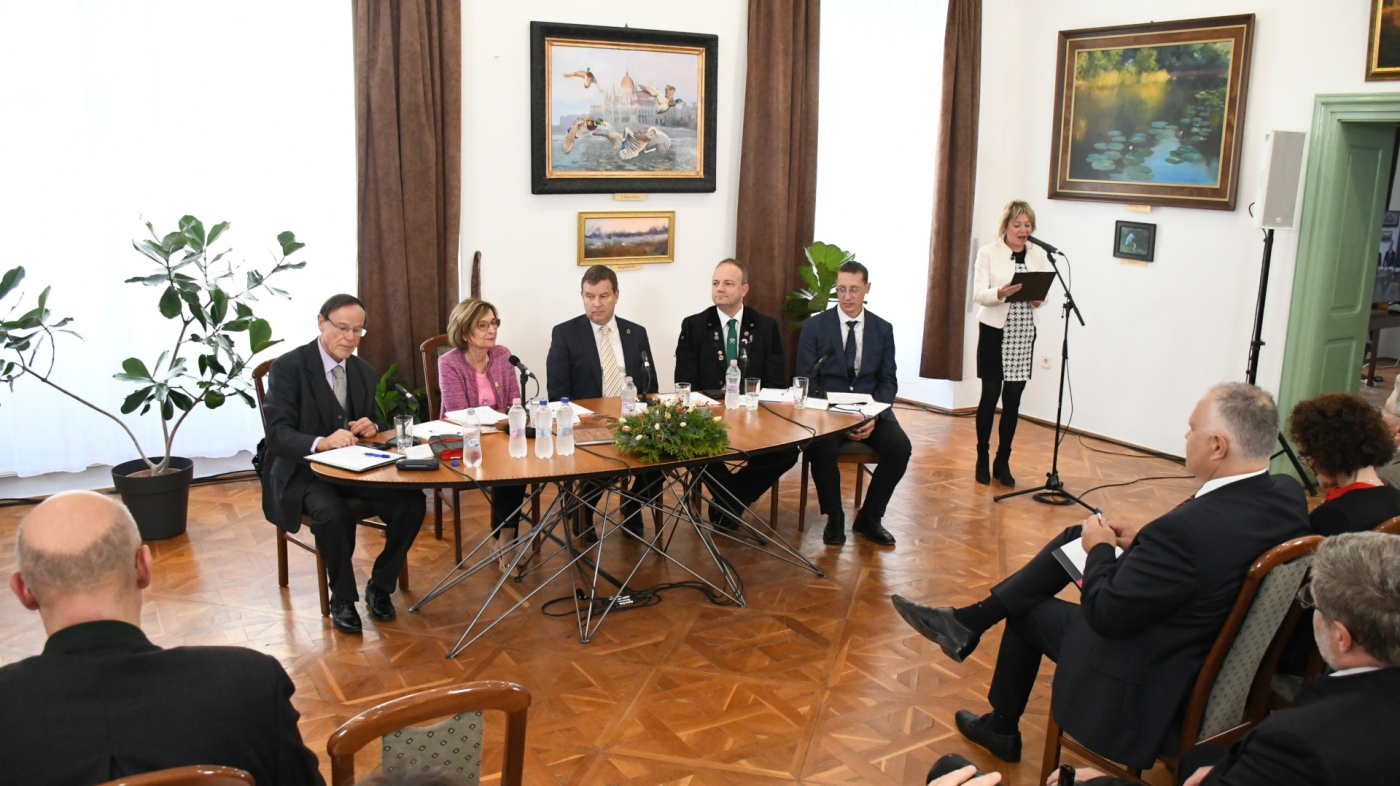What is the role of science in the current crisis situation? Can scientific and technological innovation be a solution to the environment, climate and energy crisis? Is science effective in crises or is science itself in a crisis? Answers to these questions were sought by renowned researchers, academics, natural and social scientists in a roundtable discussion at Sopron University, held on November 2 on the occasion of the Hungarian Science Festival.
In front of a full house in the newly renovated Esterházy Palace, in the ceremonial hall of the Sopron Forestry Museum, a scientific roundtable discussion was organized as part of the Sopron University and Hungarian Academy of Sciences series of ceremonies. The popularity of the program is characterized by the fact that in addition to the audience on the site, hundreds of people also follow the live broadcast on the Internet, which can be seen at the link below:
current topic
The increased interest is due to the relevance of the topic of the choice of topic, as well as the personality, scientific performance and consistent professional position of the interlocutors. as such Dr. Balint HillThe Dean of the Sopron University School of Forestry Engineering, moderator of the discussion, stated that this discussion can provide a framework for representatives of various fields of science to seek answers to global challenges affecting science – as well as the ecosystem and humanity in it.
Because there was complete agreement among the participants that science faces serious challenges, and also that we are undoubtedly in a state of crisis. This position is perhaps the most consistent Prof. Dr. Andras Gelenseer, dean of Bannon University, and corresponding member of the Hungarian Academy of Sciences, whose bleak predictions have recently caused a serious resonance outside academic circles. As the professor said, he was surprised by the sudden interest, because he had been making the same claims in scientific articles for years.
“Biological short circuit”
Dr.. Ksaba MathiasProfessor Emeritus of Sopron University, full member of the Hungarian Academy of Sciences, confirmed his agreement and described the current situation as a kind of “biological short circuit”. This concept is an evolutionary-physiological approach to the environmental crisis, and the end result is an extraordinary amount of carbon dioxide emissions. However, he saw the ideologies of “self-deception and pseudo-scientific prevention” in which the economic elite and the majority of consumers attempt to cover up the problem as a problem larger than the environmental and climate crisis.
Balint Hill drew attention to the importance of the fact that science should not take the role of Cassandra, and should not only define a dark vision of the future, but also come up with solutions. Join it Prof. Dr. Gabor Musa University professor, Dean of the School of Earth Sciences at the University of Miskolc, who introduced practices from his field to mining sciences—among them the trend of “urban mining,” which essentially means re-extracting and using raw materials that had previously been mined and used once, and was particularly interesting—and which The “circular economy” can be real driving forces.
He sheds light on the issue from the point of view of social sciences Prof. Dr. Victoria Sirmay disc.Széchenyi Laureate Research Professor, Doctor of the Hungarian Academy of Sciences, Employee of the Institute of Sociology of the Hungarian Academy of Sciences Research Center for Social Sciences. As a sociologist, he primarily provided the critical influence of severe and increasingly extreme social inequalities.
Key: Education, media and scientific publishing
In addition to assessing the severity of the crisis situation, there was complete agreement among the scientific participants in the discussion on another point: the priority role of education.
There is a need for a “new myth,” more specifically a “new narrative,” based on a responsible and rational relationship with Earth’s finite resources, sustainability, future generations and science. Education plays a major role in this, especially complex higher education structures that treat sustainability as a primary context, such as Sopron University.
– said Chapa Mathias
That’s where scientific research (through the Institute of Forest Sciences, among others), college-level kindergarten teacher training and practical education can be found in one system, Hill Plante added.
concrete solutions
In any case, Sopron University offers concrete and tangible scientific solutions to mitigate the negative effects of climate change, given that forests were among the first to face the problem of the climate crisis, Chapa Matias noted. An example is the Forest Decision Support System (eDTR) developed by the university’s Institute of Forest Sciences, which can model the long-term environmental conditions and characteristics of growing areas by dividing them into relatively small areas, and assisting growers in selecting the most appropriate tree species. For its cultivation there, and this system is not only forestry, but also suitable for modeling agricultural production sites, so its usability is very wide.
At this point, innovation efforts by the two “sister universities”, Forestry in Sopron and Mining Sciences in Miskolc, came together, with Gabor Moussi forcefully emphasizing the positive role of scientific and technological innovations.
(Source: Sopron University)












































